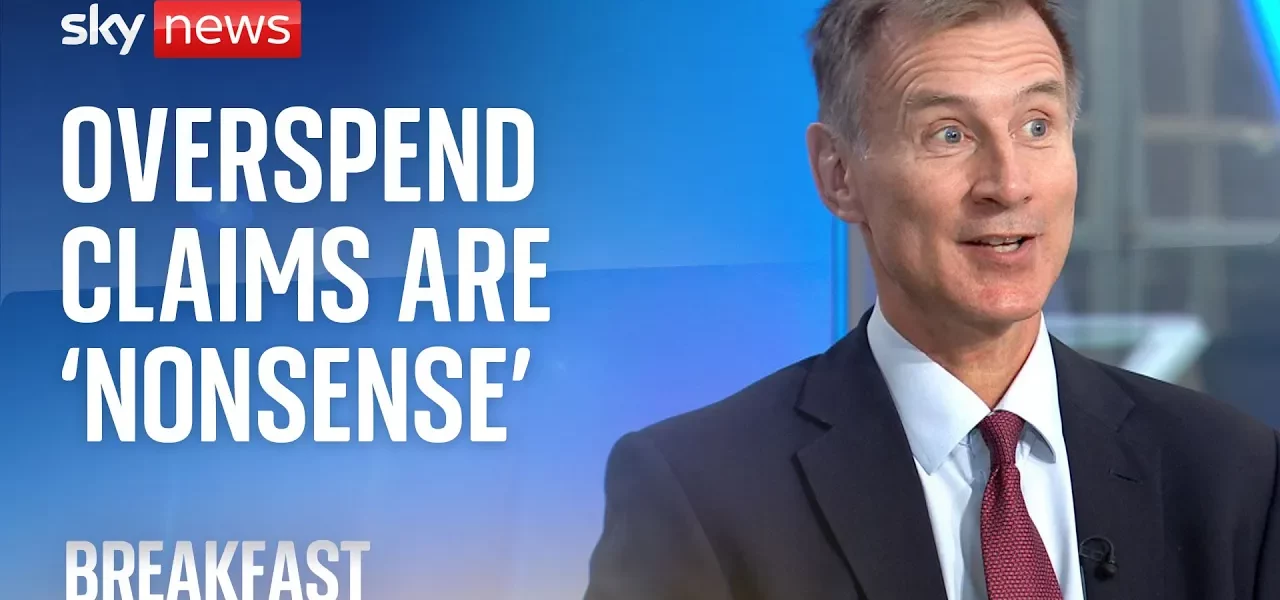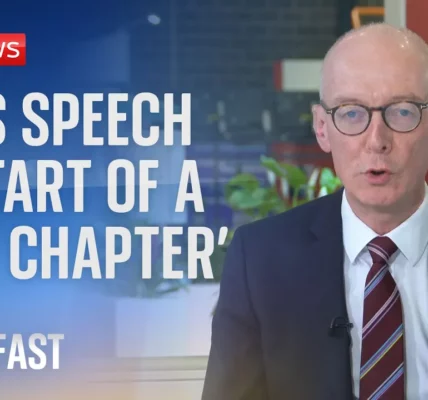The Political Exchange: Jeremy Hunt’s Reaction to Rachel Reeves’ Accusations

In a recent political exchange, Shadow Chancellor Jeremy Hunt responded to accusations made by Chancellor Rachel Reeves, shedding light on the complexities of public finances and government policies in the UK. This article delves into the key points discussed, providing context and analysis of their implications for UK politics.
Introduction
The landscape of UK politics has been punctuated by a heated debate concerning public finances, particularly following the remarks made by Chancellor Rachel Reeves. In an interview, Shadow Chancellor Jeremy Hunt expressed his disappointment over the name-calling and accusations of dishonesty leveled against him. This article explores the details of their exchange, scrutinizing the arguments presented and their potential ramifications on the political climate and public perception of fiscal responsibility.
Accusations of Dishonesty
In her recent statements, Rachel Reeves accused Jeremy Hunt of deliberately misleading Parliament and the public regarding the state of public finances. According to Reeves, Hunt’s actions during the election campaign were not only deceptive but indicative of a broader trend in Conservative politics.
Hunt’s Response
Jeremy Hunt labeled Reeves’ accusations as unfortunate, emphasizing the importance of maintaining integrity in political discourse. He reiterated his respect for Reeves as a committed civil servant but expressed disappointment that she resorted to personal attacks rather than focusing on policy.
Public Sector Pay and Financial Planning
One of the cruxes of the debate revolves around public sector pay rises. Reeves approved a significant £9 billion increase for public sector workers, which Hunt criticized for lacking demands for productivity improvements.
Hunt’s Fiscal Strategy
- Emphasis on productivity in the public sector
- Welfare reform as a necessary measure for budget management
- Implementation of the Rwanda scheme to manage illegal migration effectively
Hunt argued that these strategies were essential for ensuring fiscal responsibility and managing the public finances sustainably.
The Asylum Budget Concerns
Another significant point raised by Hunt was the management of the asylum budget. He highlighted the financial implications of cancelling the Rwanda plan, which was designed to mitigate asylum costs.
Projected Costs
Hunt explained that the Home Office had warned that the asylum bill could escalate to £11 billion per year by 2026. The cancellation of the Rwanda scheme, according to Hunt, crystallized costs at a critical juncture, exacerbating financial pressures on the government.
Impact of Policy Changes
By reversing the Rwanda plan, Hunt claims that Labour has effectively increased the asylum budget, leading to potential long-term financial repercussions:
- Increased costs for the government in managing asylum claims.
- Potential rise in illegal immigration due to perceived policy leniency.
- A lack of effective long-term solutions to immigration challenges.
Transparency in Financial Reporting
The discussion also touched upon the transparency of financial information provided to the Office for Budget Responsibility (OBR). Hunt defended the integrity of the Treasury civil servants, asserting that they acted with propriety and that the data submitted was accurate.
Concerns Raised by the OBR
Hunt welcomed the OBR’s investigation into the transparency of financial data, asserting that the review would validate the credibility of the Treasury’s reporting processes.
Future Tax Policies and Economic Growth
As the conversation progressed, the topic of tax policies emerged, with Hunt stressing the need for careful consideration of tax cuts and their timing. He claimed that the Conservative party had always been clear about their tax policy timeline, stating that any cuts promised would be implemented in the future, not immediately.
Tax Cuts and Economic Growth
Hunt argued that lower taxes were essential for fostering economic growth, drawing comparisons to economies in the United States and Asia that have thrived under lower tax regimes. He cautioned against the Labour government’s potential tax increases, which he believes would stifle growth.
Conclusion
In conclusion, the exchange between Jeremy Hunt and Rachel Reeves highlights the contentious nature of UK politics surrounding public finances. Hunt’s defense of his policies and criticism of Reeves’ approach reflect broader concerns regarding transparency, fiscal responsibility, and the impact of government decisions on the economy. As the political landscape evolves, it will be crucial for both parties to communicate their plans clearly to the electorate. For further insights on UK politics and public finance, explore our related articles.
“`




